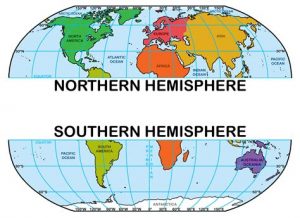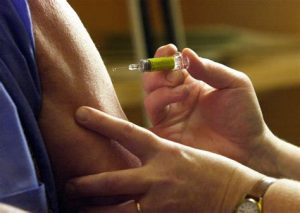 |
| INFLUENZA VIRUS |
Ive been a bit laggard with my annual flu jab this year. Knowing that MS relapses are associated with viral illness, with flu right up there with the worst, I usually get my flu jab early.
This year I have missed the first boat and have to wait for supplies of the vaccine to be replenished in November. There are now problems with supply meaning that promises for widespread vaccination, like so many other political targets, are falling short.
There has been an unusual rush for many people to get vaccinated before the flu season piggy backs on the pandemic’s winter return, so we have run out of stocks for the moment – just as the flu season approaches…..
That is, if it does. Part of my causal approach was encouraged by news that the flu season in the southern hemisphere has not really happened, mainly due to collective changes in behaviour, and partly due to increased uptake of the vaccine on the back of the COVID pandemic.
From Australia and NZ, across to South Africa and then Chile and Argentina, the flu season has not taken off at all. The table below from “Science” via the Bart’s blog shows the documented cases of flu falling off a cliff:
| Country | 2018 | 2019 | 2020 |
| Argentina | 1517 | 4623 | 53 |
| Chile | 2439 | 5007 | 12 |
| Australia | 925 | 9933 | 33 |
| South Africa | 711 | 1094 | 6 |
Relaxing ones approach to flu in the northern hemisphere on the back of this might be a mistake, as things are very different up here and the virus can easily mutate between their winter and ours. Time will tell, but the experience ‘down’ there has been unusual.
Clearly change in behaviour must be a big driver of this, as well as increased uptake of flu vaccines, though availability does vary across many of the countries showing a drop. So reduced exposure really makes a big difference to the rate of flu infections, and so by implication, COVID19 too. This supports the use of social distancing, mask wearing and hand washing. They seems to have a dramatic effect down south.
But might the flu jab have a direct effect on immunity itself?
A study from Brazil back in June showed reduced risk of complications in those who had recent flu jabs with an 18% reduction of the risk of needing intensive care and a 17% reduced risk of death. Another from Italy noted the association too. Dutch healthcare staff given the vaccine had lower rates of illness than those who don’t too and in the US it is suggested that a 10% increase in flu vaccination is associated with a 28% reduction in COVID19 mortality.
How might this work? An interesting laboratory based study sheds some light on the mechanism.
This is their abstract for your interest:
“Every year, influenza causes 290,000 to 650,000 deaths worldwide and vaccination is encouraged to prevent infection in high-risk individuals. Interestingly, cross-protective effects of vaccination against heterologous (different) infections have been reported, and long-term boosting of innate immunity (also termed trained immunity) has been proposed as the underlying mechanism.Several epidemiological studies also suggested cross-protection between influenza vaccination and COVID-19 during the current pandemic. However, the mechanism behind such an effect is unknown. Using an established in-vitro model (laboratory) of trained immunity, we demonstrate that the quadrivalent inactivated influenza vaccine used in the Netherlands in the 2019-2020 influenza season can induce a trained immunity response, including an improvement of cytokine responses after stimulation of human immune cells with SARS-CoV-2.In addition, we found that SARS-CoV-2 infection was less common among Dutch hospital employees who had received influenza vaccination during the 2019/2020 winter season (RR = 0.61 (95% CI, 0.4585 – 0.8195, P = 0.001).In conclusion, a quadrivalent inactivated influenza vaccine can induce trained immunity responses against SARS-CoV-2, which may result in relative protection against COVID-19. These data, coupled with similar recent independent reports, argue for a beneficial effect of influenza vaccination against influenza as well as COVID-19, and suggests its effective deployment in the 2020-2021 influenza season to protect against both infections.”
The interesting thing about this is the finding of cross-reactivity between the virus and other infections. The popular myth is that immunisations can “overload” the immune system, but this evidence supports the opposite; it enhances it.
As ever there is the alternative view, with this paper suggesting just the opposite. However, this is a less detailed statistical analysis with many unknowns, in particular which vaccine is used and how they are offered to the population. The bulk of the evidence suggests a benefit. despite expecting people vaccinated to have a higher risk of COVID as they are naturally a higher risk population.
However, I’m convinced by the evidence of reduced problems in those vaccinated. The next thing is trying to get one!


Hi Paddy. They ran out of the first batch but more are available now. Ive booked in for mine later this month. I don't think there is much more to it than a surge in global demand. I get the feeling that COVID19 restrictions and behaviour change might mean we have a quiet flu season. Hope so. Thanks for the feedback. Hope all is well in Plymouth.
They look at strains circulating around the southern hemisphere, I think, and make and educated guess. If the mRNA technology takes off this might change things as they can wait until they actually know what is around. x
.
Hi Colin…Hands-free announced flu jab for enlarged cohort in July.
I have tried twice without success…Pete has also been denied.
I wonder if it was just another Tory lie?
Perhaps ask your readers whether they have had difficulty getting flu jab to identify any pattern.
Hope you are keeping well.
Paddy. X
Thanks Benny – nothing is black and white, apart from chess! mRNS vaccine could change everything it seems. Im writing this up right now, but Im sure your on it as well. x
The fact that you also looked for conflicting evidence is very important. This is couched in the right language avoiding the certainty one often reads. I've been done already (flu jab).
I believe they try to predict what kind of flu variants will be around, although how they do that is a mystery to me. I expect statistics are involved, but I've no idea what they might be counting.
Thanks for the feedback. Yes indeed, I think either way a flu jab is a good idea. I must chase mine up!
Fascinating Colin, and helps me understand why flu vaccines work at all. I got mine a couple of months back (maybe too early???), but I have always wondered why they work. What I mean is – the batches were probably made several months prior to injection (6 months then frozen?). In turn these were developed from a flu variant around the year before. So the time from a particular strain being around to injection is probably ~ 1 year, by which time there may well be a different mutant strain. However, maybe the immune boost, rather than specific activity against a new virus is the the important thing